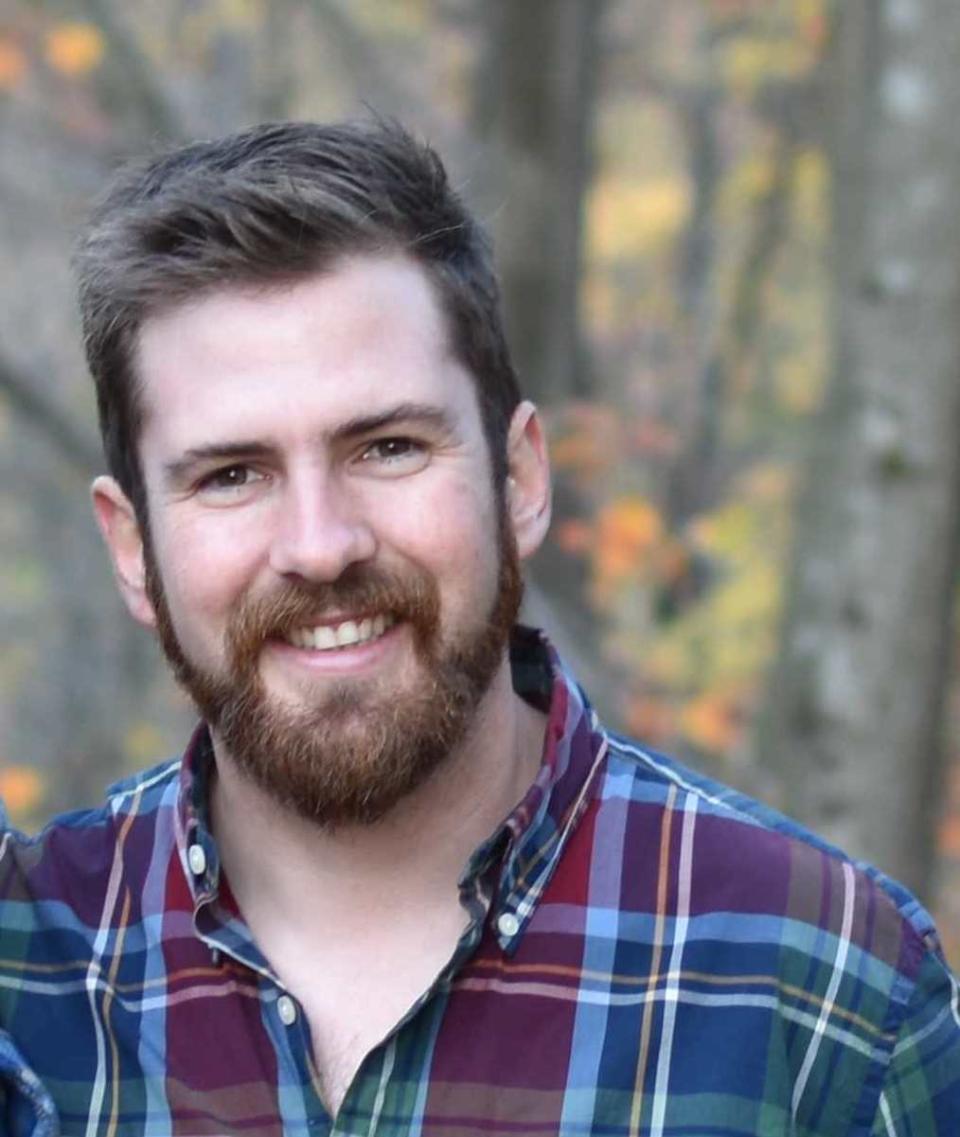A farm boy's guide to bridging difficult conversations at the holiday dinner table
It was 2010 and I was far from the family farm where I had grown up, surrounded by the shining glass skyscrapers of downtown Nashville. The banker on the other end of the phone was talking to me – from what I knew was a sleek office just cleared of elaborate holiday decorations – about how hard the Great Recession had been on banks, when he said it:
“This isn’t like the really good years.”
I remember thinking when the hell were those? as the skyscrapers around me got taller, his office miles away got bigger, and I started to get really, suddenly, pissed.
America's rural-urban divide is real, but can be bridged
What I was experiencing was America’s rural-urban divide, which is getting worse and now ranks as one of our country’s biggest splits, alongside race, education and class. It being Christmas, a time that’s supposed to inspire goodwill, I thought we could give each other the gift of knocking it off. Here are the key things to understand as I see it, having grown up in rural Wisconsin before learning hard lessons from coast to coast.
Deer hunting is dying. That should worry you even if you don't hunt.
What that banker hadn’t experienced, or had maybe forgotten, is there are two totally separate economies in our country. The one he revealed to me as a young business journalist over a decade ago was the urban economy defined by growth: the boom of the housing market, the bust of the Great Recession and whether he was in a position of making money – or having to collect from customers and hope his losses on unpaid debt didn’t pile up enough to put the bank in danger.
The rural economy I came from faced the bust – underwater mortgages, lost jobs, dropping farm income, destroyed retirement funds – but hadn’t experience the growth you’d need for a boom in decades. Outside of new homes from urban dwellers escaping the city, rural communities have watched money, jobs and more gravitate toward the city for nearly a century. And farms like ours in the rolling green hills of Sauk County face rising seed, fertilizer and energy costs that outpace the prices for our goods, no matter how strong the market is.
Both places risk economic pain, but in totally different ways. And there’s far more to our misunderstandings of each other than that.
Opinion alerts: Get columns from your favorite columnists + expert analysis on top issues, delivered straight to your device through the USA TODAY app. Don't have the app? Download it for free from your app store.
For starters, rural people aren't angry and ignorant
Over the past decade, people from the country have gained a reputation for being angry. National journalists have parachuted in, especially in election years, studying the rural voter as one might a zoo animal acting strangely in captivity. (And yes, I realize my getting mad at a banker for having some good years doesn’t debunk this.)
But people from rural communities aren’t just walking around mad. The reality is there’s more a feeling of being left behind than anything else, making people where I’m from much more interested in being leveled with – authenticity over outrage, as I wrote in the case of viral country music sensation Oliver Anthony surpassing anger-stoking Jason Aldean.
And when it comes to the culture wars, data shows suburbanites and urbanites much more engaged than rural residents.
But it wouldn’t be right if I didn’t speak up for my urban friends, too.
The system seeks to divide us: Democrats, stop ignoring rural, red communities. Do you know who you're writing off?
It's not all bad news in the big city, either
For every big shot who’s made me feel small as I experienced life in Nashville, Washington, D.C., and Northern California, there have been more people I’ve learned from.
There are the countless bar stool conversations with people working on factory floors, docks and construction sites, demonstrating that building our country is a close cousin to feeding our country. The urban poor, of course, have long faced challenges mirroring rural poverty. And despite the fears of urban crime and drugs that people where I’m from sometimes grow up with, issues like the drug crisis show we have more in common than not.
America's hidden strengths: I walked from D.C. to NYC, and found my faith in America restored along the way
Even in the professional community (yes including the bankers!), there are a lot of people who were the first in their family to go to college and worked their way to a more secure place in our economy. And many more who have admiration for those who did.
As a matter of fact, that banker turned out to be one of the kinder people I met in Nashville. And you don’t have to be from anywhere in particular to appreciate a gift like that.

Brian Reisinger grew up on a family farm in Sauk County, Wisconsin. He contributes columns and videos for the Ideas Lab at the Milwaukee Journal Sentinel, where this column first published. Reisinger works in public affairs consulting for Platform Communications. Previously, he worked on the U.S. Senate campaigns of Republicans Lamar Alexander and Ron Johnson, as well as Scott Walker's for governor.
You can read diverse opinions from our Board of Contributors and other writers on the Opinion front page, on Twitter @usatodayopinion and in our daily Opinion newsletter.
This article originally appeared on Milwaukee Journal Sentinel: America's rural folks aren't angry and ignorant. They feel left behind

